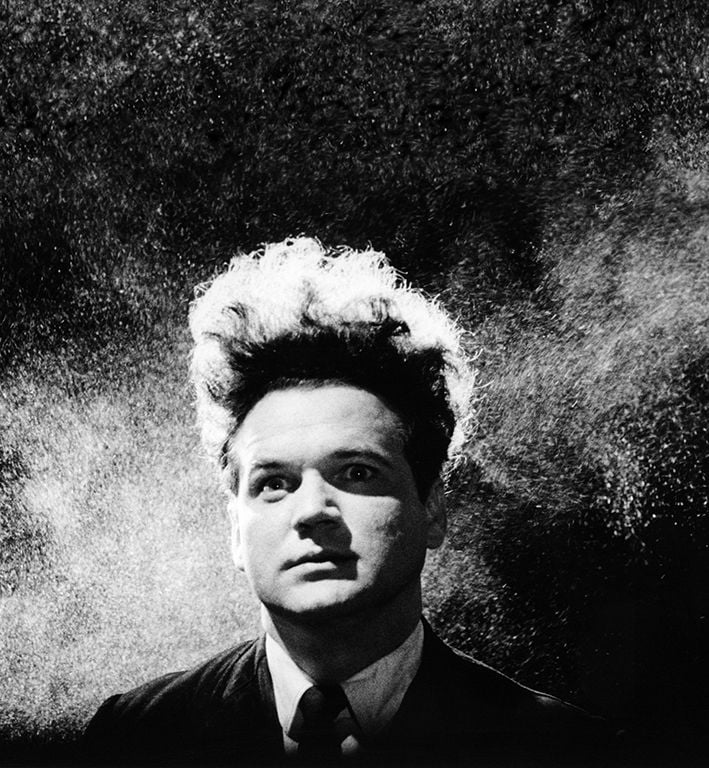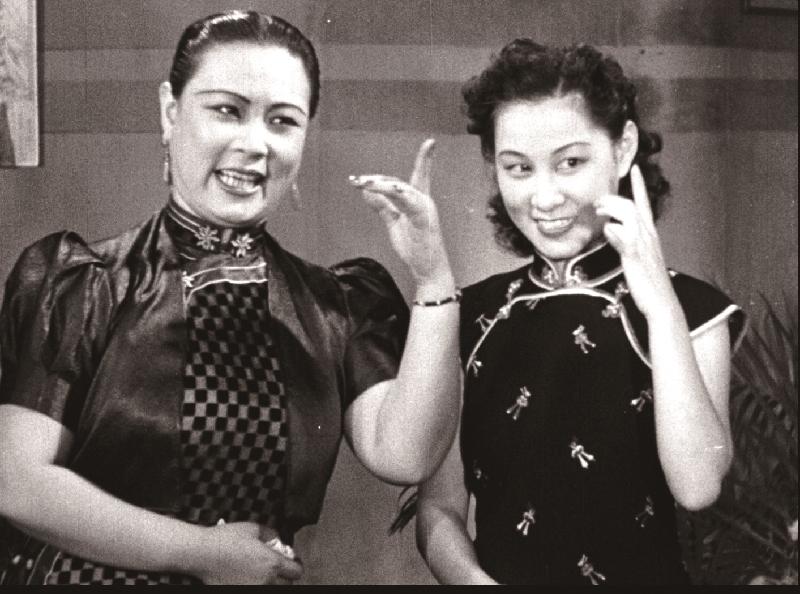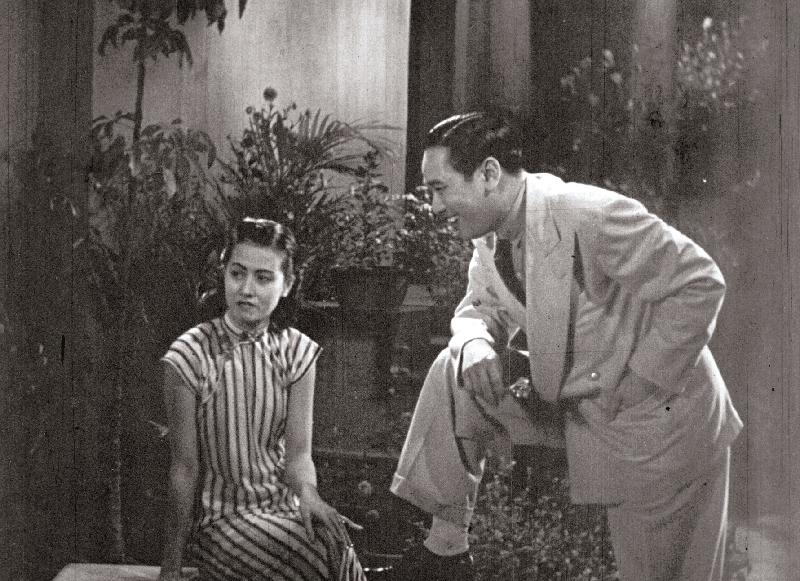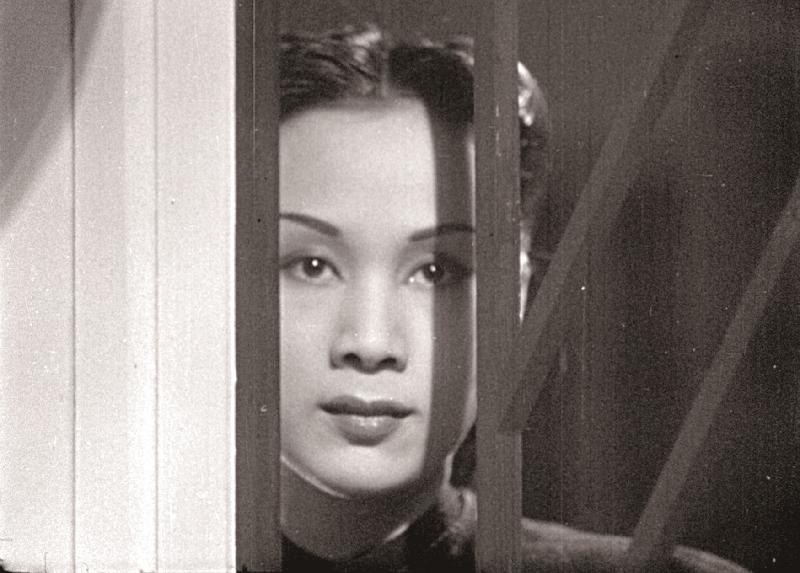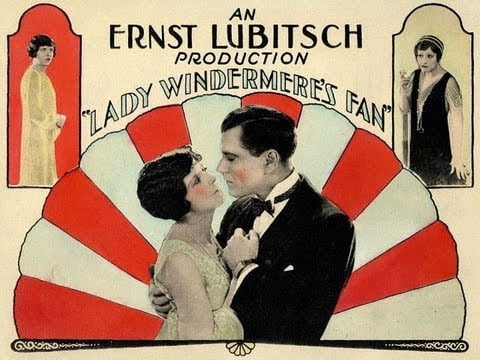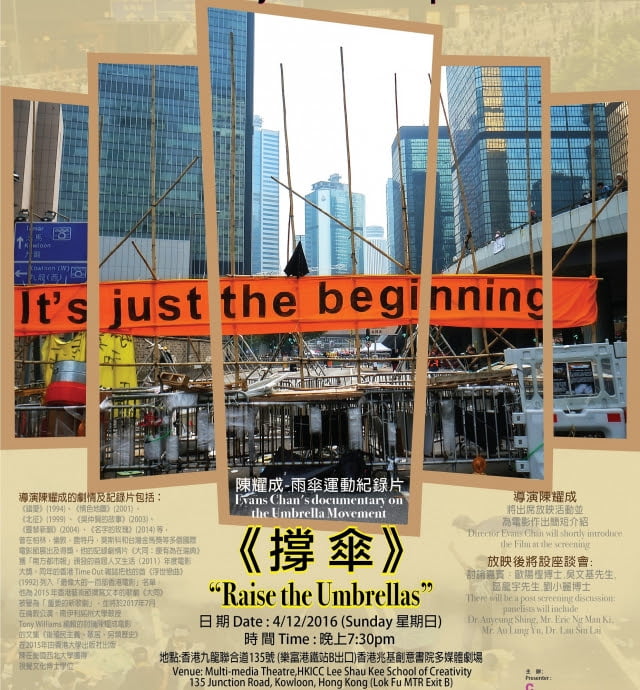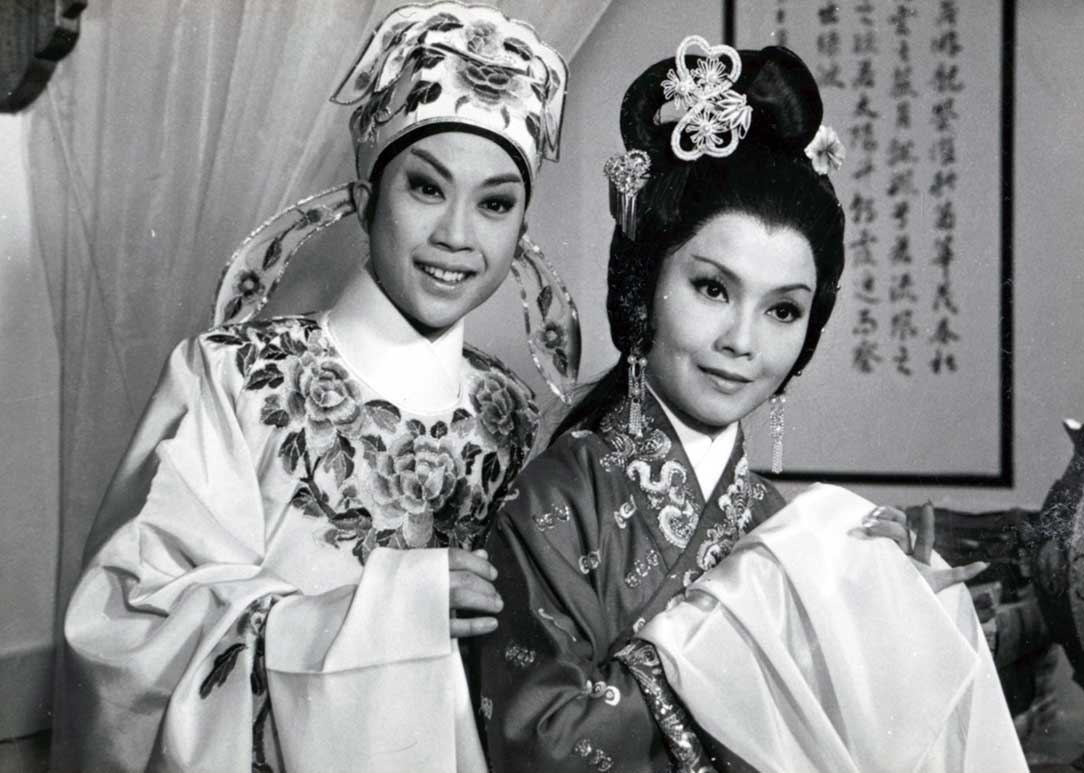
It’s the centenary of the playwright Tong Tik-sang birth on the 18th June and in celebration the Hong Kong Film Archive will host 27 films adapted from his operatic works, or directed/written by Tong himself. Entitled A Century of Operatic Treasures in Film – A Tribute to Tong Tik-sang on His 100th Birth Anniversary the retrospective is split into four themes of ‘Traces of Snow in Tong’s Songs’, ‘Old Scripts Revisited’, ‘Lovesick Pairs’ and ‘Whodunits’ which lend an eclectic look at Tong’s legacy and runs from 27 May to 25 August.
Born in 1917 as Tong Kong-nin, Tong Tik-sang (1917-1959) was a playwrighting genius whose ingenuity in writing and directing significantly shaped Cantonese opera’s development and inspired Hong Kong cinema. In 1937, he came to Hong Kong to join the Kok Sin Sing Opera Troupe as a copyist, while also studying libretto writing from famed playwrights Fung Chi-fun and Mak Siu-ha and wrote his first Cantonese opera in 1938. From the 1940s onwards Tong wrote prolifically for both film and stage, penning over 400 operas during his career many of which have become timeless masterpieces that continue to impress today and form a significant part of Hong Kong’s cultural heritage.
‘Traces of Snow in Tong’s Songs’ is the main theme of the retrospective, with films featuring performances by Yam Kim-fai and Pak Suet-sin, who worked closely with Tong. Fairy In Drawing (畫裏天仙, 1957) is the signature romantic story played by the duo, in which lucid and lively music and lyrics by Tong breath life into Chinese folklore. The Naughty Couple (妻嬌郎更嬌, 1960), which touches on life and death in a light-hearted way, was the last film scripted by Tong before his passing. The melodrama Madam Wan (芸娘, 1960) sees good emerges from evil for a happy ending, thus following the classic manner of storytelling in most Chinese operas. Based on Tong’s original opera, As Luck Will Have It (運喜當頭, 1955) depicts the thoughts of ordinary folks in the vernacular and delivers some side-splitting humour.
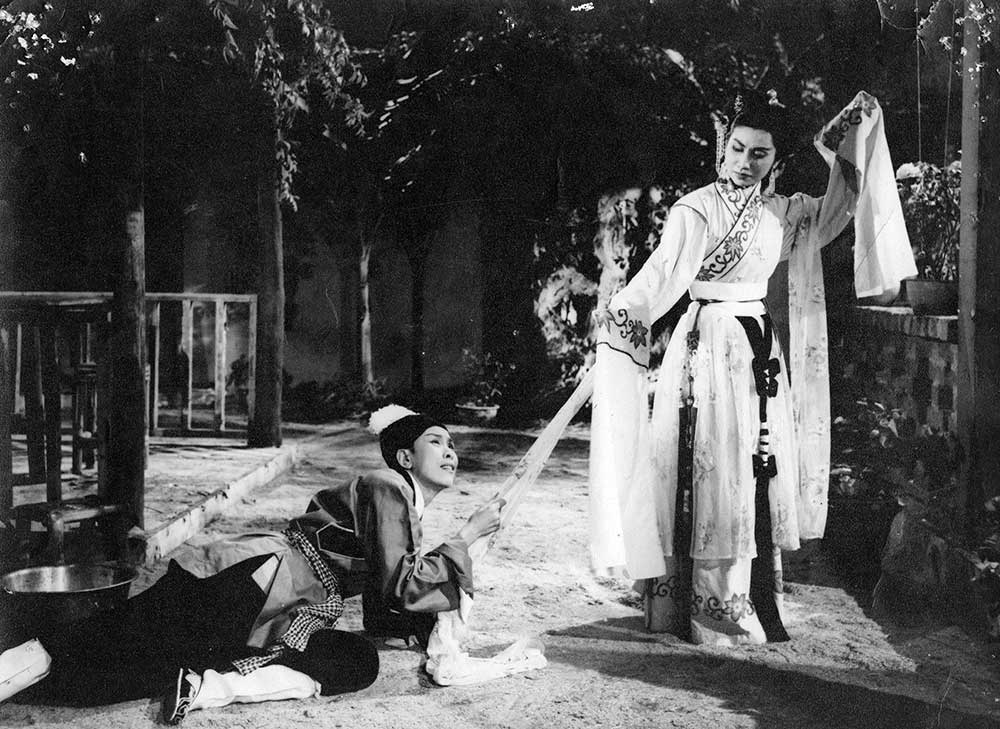
Lee Tit’s directorship, Tong’s exquisite lyrics and Yam and Pak’s flawless performances shine through in the Cantonese opera film classic The Legend of Purple Hairpin (紫釵記, 1959). Unlike Tong’s recurring romances, the story structure of Butterfly and Red Pear Blossom (蝶影紅梨記, 1959) is original, and the lovers do not meet until the final scene. A Poor Girl (可憐女, 1959) follows dutiful concubine Pak, who upholds an unquenchable desire for truth and justice, even though she has been framed for murdering her own son. The Lotus’s Story (芙蓉傳, 1959) features Fu-yong, Poet Laureate of Jiangnan and a courageous woman ahead of her time, in which the sequence ‘Waiting for the Full Moon at the West Chamber’ is a great example of the romantic scenes played by Yam and Pak.
‘Old Scripts Revisited’ focuses on film adaptations of Tong’s period repertoires being placed in a more contemporary context. The Swallows’ Return (一年一度燕歸來, 1953) and Swallows Come Home (一年一度燕歸來, 1958) are based on the same Cantonese opera with the former a contemporary version and the latter a period work. Fong Yim-fun stars in both films, proving herself equally adept at both eras. Adapted from a period to a contemporary setting, Wealth Gone Like a Dream (十載繁華一夢銷, 1952) oozes human warmth and compassion, which makes a departure from Tong’s signature romantic libretti. The film marked the final on-screen appearance of Liu Hap-wai, known as “the head of the four comic masters”. Tong took reference from Hollywood film noir to direct Mysterious Murder (Part One / Part Two) (紅菱血 /上/下集, 1951) with a modern spin, in which the music is a hybrid of Cantonese opera music and Western orchestral music, highlighting a new attempt at adapting old scripts.
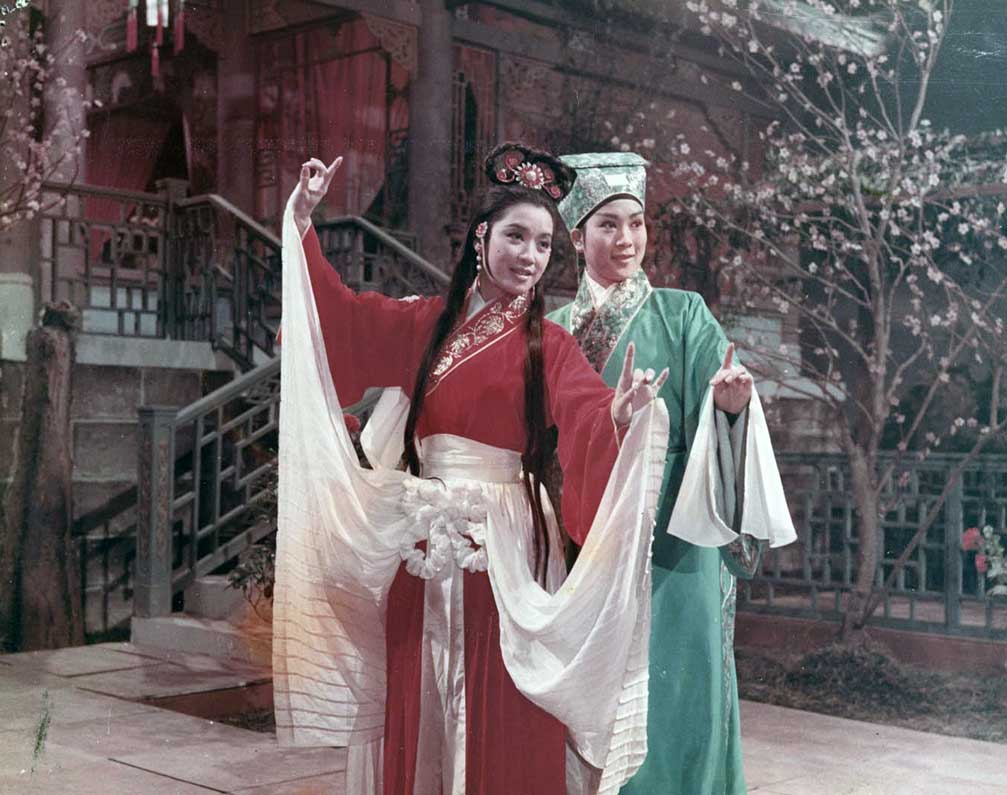
‘Lovesick Pairs’ presents some eternal stories of star-crossed lovers in Cantonese operatic gems. Adapted from Tong’s posthumous opera for the Sin Fung Ming Opera Troupe, Love in the Red Chamber (再世紅梅記, 1968) follows the romance between a scholar (Connie Chan Po-chu) and his lover (Nam Hung) being stymied by the murderously jealous prime mister (Leung Sing-po). Li Tit directed The Legend of Purple Hairpin (紫釵記, 1977) again with full cinematic treatment, this time featuring the young apprentices of Yam Kim-fai and Pak Suet-sin, namely Lung Kim Sung and Mui Suet-si, in which the signature sequence is masterfully crafted with elegant mise-en-scène and evolving atmospheres. The singing of Yam and Fong Yim-fun in Regret from the Spring Lantern and Feather Fan (春燈羽扇恨, 1959) mirrors the chain of obstacles often encountered in the way of love.
‘Whodunits’ features films about revealing culprits and righting wrongs, with Tong incorporating elements of mystery and suspense from the West into traditional Chinese stories. The Swallow’s Message (一年一度燕歸來, 1959) is notable for its intriguing plot twists, in which Tang Bik-wan is accused of having a secret affair with Law Kim-long and even of killing her husband. In Red Shoes Solves the Mystery Case (紅菱巧破無頭案, 1959), Poon Yat On kills his own wife to elope with Fung Wong Nui, and lays down a ruse to suggest Fung has been the victim. In A Smile of Woe (梨渦一笑九重寃 1952), the heroine (Fung, again) is wrongly convicted and gives birth to a son whilst in jail. Her son grows up and vows to exonerate his mother from the monstrous injustice. Gold-braided Fan (穿金寶扇, 1959) features Yam Kim-fai and Pak Suet-sin’s love story with twists and turns, in which Pak’s father annuls their matrimony and Pak is involved in a case of theft and murder. Fortunately she is vindicated and gets to reunite with Yam.
Professors Lau Yin-ping, Yu Siu-wah and Chan Sau-yan will review Tong’s creative career and achievements in a seminar entitled ‘The Cinematic and Operatic Art of Tong Tik-sang’ to be held at 4:30pm, 18 June at the HKFA Cinema.
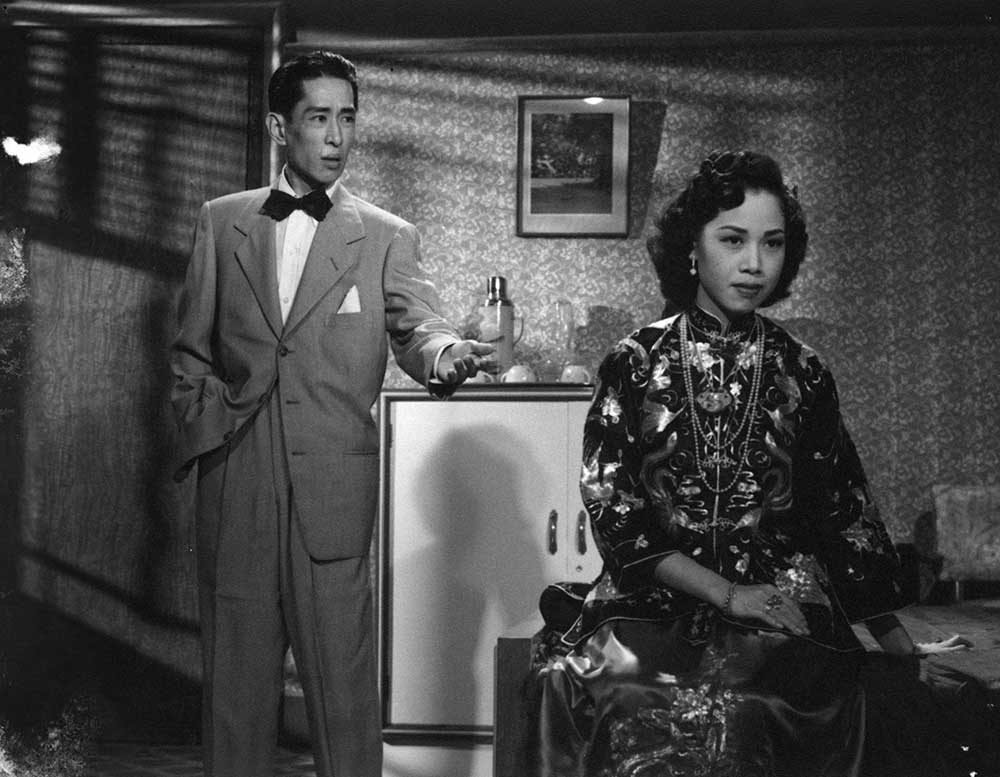
A Century of Operatic Treasures in Film – A Tribute to Tong Tik-sang on His 100th Birth Anniversary
紅菱血 /上/下集 Mysterious Murder, Part One/Part Two (1951), 十載繁華一夢銷 Wealth Gone Like a Dream (1952), 梨渦一笑九重寃 A Smile of Woe (1952), 一年一度燕歸來 The Swallow’s Return (1953), 一樓風雪夜歸人 Return on a Snowy Night (1957),鴻運喜當頭 As Luck Will Have It (1955), 夜夜念奴嬌 Tonight and Every Night (1956), 畫裏天仙 Fairy In Drawing (1957), 一年一度燕歸來 Swallows Come Home (1958), 三審狀元妻 Three Trials of the Number One Scholar’s Wife (1958), 三年一哭二郎橋 Triennial Mourning on the Bridge (1959), 春燈羽扇恨 Regret from the Spring Lantern and Feather Fan (1959), 跨鳳乘龍 Happy Wedding (1959), 燕子啣來燕子箋 The Swallow’s Message (1959), 紅菱巧破無頭案 Red Shoes Solves the Mystery Case (1959), 穿金寶扇 Gold-braided Fan (1959), 枇杷巷口故人來 A Respectable Tutor (1959), 紫釵記 The Legend of Purple Hairpin (1959), 蝶影紅梨記 Butterfly and Red Pear Blossom (1959), 可憐女 A Poor Girl (1959), 獅吼記 The Lion’s Roar (1959), 芙蓉傳 The Lotus’s Story (1959), 芸娘 Madam Wan (1960), 妻嬌郎更嬌 The Naughty Couple (1960), 再世紅梅記 Love in the Red Chamber (1968), 紫釵記 The Legend of Purple Hairpin (1977)
All films are in Cantonese with Chinese subtitles for some lyrics only.


